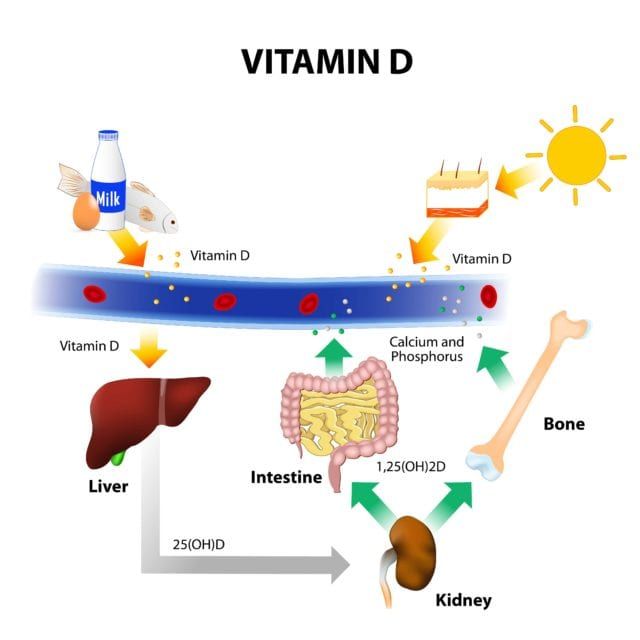As you may know, your overall health can affect your oral health and vice versa. One example of this that many people are not familiar with is the link between vitamin D and dental implants. If you are considering having dental implants placed, it is important to understand this link so that you can take the necessary steps to have the best possible outcome.
In order to understand the link between the two, we must first understand what vitamin D is and how it functions within the body. Vitamin D is a fat-soluble vitamin supplied to the body primarily through sun exposure, although it is also found within some foods. The main function of vitamin D within the body is to promote the absorption of calcium and phosphate. In fact, calcium and phosphate can only be absorbed when vitamin D is present in the body.

Vitamin D also has several other functions, including:
- Modulating cell growth
- Reducing inflammation
- Supporting neuromuscular function
- Allowing bone growth and remodeling
- Enabling normal mineralization of bone
Now let’s consider the basics of dental implant placement. Dental implants are artificial tooth roots that are placed within the jawbone. As they heal, they undergo a process called osseointegration, which is a fancy term to describe the bone fusing the implant in place. In order for fusion to occur, however, the existing bone must first be structurally stable and new bone growth is also needed.
Therefore, having adequate amounts of vitamin D allows enough calcium and phosphate to be absorbed so that the above functions can be performed. This generally results in better treatment outcomes and faster healing. Additionally, because vitamin D reduces inflammation, it has also been found to decrease the risk of postoperative infection and gum disease. Overall, maintaining proper vitamin D intake has proven to have beneficial outcomes for dental implant treatment.
Conversely, those who are deficient in vitamin D may be at an increased risk for postoperative complications, as well as slower healing. In order for dental implants to be successful, they must fuse with the surrounding bone. However, if the body is not able to grow enough new and stable bone, this makes it harder for fusion to occur. This can ultimately lead to implant failure or a loose implant.
Unfortunately, many people are deficient in vitamin D according to an article cited on the National Center for Biotechnology Information database. The article notes that as many as 41.6% of Americans are deficient in vitamin D. Individuals with darker skin, who spend little time outdoors, or those who are overweight or over the age of 65 are at an increased risk for vitamin D deficiency. You may be vitamin D deficient if you have experienced hair loss, fatigue, muscle and bone pain, depression, wounds that don’t heal properly, or if you are sick frequently.

Luckily, a vitamin D deficiency can be easily diagnosed with a blood test ordered by your primary care doctor. It can also be easily treated by taking an over the counter vitamin D supplement. Most doctors recommend taking about 600 IU of vitamin D or 800 IU if you are over the age of 70. However, your doctor may have specific recommendations based on your health. Additionally, they may also recommend spending more time in the sun or eating more fatty fish and dairy products.
Overall, the link between vitamin D and dental implants is an important one that many people are not aware of. The various functions that vitamin D is involved in overlaps with functions that are necessary for the success of dental implants. Therefore, having adequate levels of vitamin D can improve treatment outcomes, while having a deficiency can increase the risk of postoperative complications.
